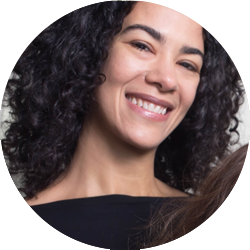There’s one single thing, I believe, that makes parenting a 3- or 4-year-old so incredibly tough. We are forced to come face to face with our own triggers stemming from our own childhoods. Suddenly we realize we don’t need to fix ourselves—we need to heal ourselves.
Age 3 is the peak of defiance, as our kids’ drive for autonomy meets improved reasoning and other higher-order cognitive abilities. We must hold the line (after figuring out where the line is now) while feeling a little bit betrayed that our little one is no longer so compliant. And so we get to see, multiple times a day, how we handle the resulting battles. Patterns emerge, if we are paying attention. We see what really triggers us and how, even if we don’t know why.
Personally, I was shocked at the ways I wanted to lash out when my daughter did certain things, like yanking my hair or skipping out of her room after she said she’d take a nap or hitting me if I tried to take a nap. I’ve written about responding in the moment (When your child hits you). Deciphering your child’s need in such situations is a whole other post. But today I want to talk about stepping back and thinking this through.
The process of untangling ourselves from our triggers may begin like so:
- OK, this thing triggers me like crazy and it’s actually something about me, not my child. It’s something about the way I am that my child is revealing to me.
- What is being revealed to me? Go deeper.
- I can move forward only if I truly accept this about myself. It was a necessary trait I developed as a child. It allowed me to function in my family, given who my parents were and their own strengths and weaknesses.
- It’s actually amazing that I could adapt like that. I am grateful for this part of me. And I can see that it’s not serving me very well anymore.
- It’d be easier not to change. But this is part of my development as a person. What is it that I must develop?
- When I notice myself being triggered, I can start to recognize it for what it is. An unresolved hurt. Me, not my child. I can commit to taking a breath, taking a break, saying out loud “I’m feeling frustrated.” As soon as I notice I’m not handling a situation the way I want, I can stop mid-sentence and say, “Can we have a do-over?” (Flipped your lid at your kid? How to recover) Over time, I can more clearly choose how I react.
Maybe you don’t know what’s behind the trigger and just want to take steps to untangle yourself from your immediate reaction.
There’s a gap between the trigger and your reaction to it. I promise. Building your awareness of what triggers you, and noticing what that feels like in your body, allows you to widen that gap. (How: What’s stopping you from being who you want?)
Other ideas:
- Replay a challenging situation with your kids and imagine yourself reacting the way you’d like. Next time it happens, practice. You may get only partway there. You will have plenty of chances to practice. Repeated action rewires the brain.
- Start holding weekly family meeting where the kids can problem-solve stuff that’s not working for the family. (Maybe you are always butting heads over certain times of day, etc., and can arrange things differently.)
- Grieve whatever related loss you experienced in your own childhood, that changing yourself is so damn hard, that all this goes against your nature. Get up again.
- Find a listening partner. Talking regularly to another person—and feeling truly heard—can start to heal the deep hurt in your heart. What else might you do to care for yourself?
- Know, as John Gottman says, that what matters is what we do most of the time (doesn’t have to be 100% of the time). Tears and repairs in relationships are actually supposed to happen. We can start again.
Know someone who might benefit from this post? Please share it with them. Even better, invite them to join our growing community.
Written by
Tracy Cutchlow
Tracy is the author of the international bestseller Zero to Five: 70 Essential Parenting Tips Based on Science, a public speaker, and a creator of places to speak and be heard. Sign up for her newsletter here.
